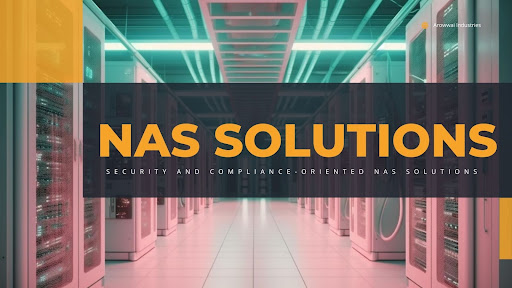The importance of data in modern-day businesses is hard to overestimate. The ability to store, manage, and analyze vast amounts of data can make or break a company’s success. Enterprises of all sizes must, therefore, have reliable and scalable storage solutions. Network-attached storage (NAS) systems have been a go-to option for many organizations for years. But with data needs evolving faster than ever before, NAS solutions also need to adapt. In this blog post, we’ll take a closer look at how NAS solutions are being redefined to meet modern data needs.
Hybrid Cloud Support
Business requirements for data storage and management may differ depending on the nature of an organization. Hybrid cloud support provides businesses with the best of both worlds; the security of on-premise storage and the flexibility and scalability of the cloud. Many NAS systems now come equipped with built-in hybrid cloud support that enables businesses to store their data both locally and in the cloud, enabling easy access regardless of where the data resides.
Improved Scalability
As your business grows, so do your data storage requirements. Still, it is not always possible for organizations to purchase additional storage units. Today’s NAS solutions include better scalability by enabling businesses to easily add additional devices to their existing systems. This allows businesses to add storage capacity as and when they need it, reducing the risk of running out of storage space.
Data Security Features
With cyber security threats becoming increasingly prevalent, securing your data has become more important than ever. Modern NAS solutions incorporate security features such as strong encryption, multi-factor authentication, and secure backups that ensure data is protected against unauthorized access.
Automated Data Management
Managing data can be time-consuming, particularly when dealing with large data sets. Modern NAS solutions include features that automate data management tasks, reducing the time spent on manual data management. Automated data management features include backups, archiving, data retention, and data replication.
Collaboration and Accessibility
In today’s world, where remote work has become the new norm, collaboration and accessibility have become crucial considerations for businesses. Modern NAS system solutions feature remote access and collaboration capabilities that enable team members to access files and work on documents from any location with an internet connection. This makes remote work much more streamlined and efficient.
Conclusion
In conclusion, modern NAS solutions are rapidly evolving to meet ever-changing data storage needs. Hybrid cloud support, improved scalability, data security features, automated data management, and collaboration and accessibility features are just a few of the latest advancements. As data continues to be a key driver for business success, companies must invest in the right NAS solutions to stay competitive.

